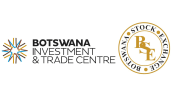Strategies for Boosting Nigeria’s Exports
Nigeria, Africa’s largest economy, is known for its oil exports. Yet, the nation’s economic health is often at the mercy of oil price fluctuations.
Diversifying Nigeria’s exports is a strategic move. It can reduce vulnerability and open up new avenues for economic growth.
This article explores strategies to boost Nigeria’s exports. From leveraging trade agreements to embracing technology, we’ll delve into ways to enhance Nigeria’s export performance.
Understanding Nigeria’s Export Landscape
Nigeria’s export landscape is dominated by oil. It’s the mainstay of the economy and a major source of revenue.
However, the country faces a trade imbalance. Imports often exceed exports in non-oil sectors, creating a deficit.
Key non-oil sectors with export potential include agriculture, manufacturing, and services. These sectors can contribute to a more balanced trade scenario.
Here are some key facts about Nigeria’s exports:
- Nigeria is the largest economy in Africa by GDP.
- The economy is heavily reliant on oil exports.
- Non-oil sectors with export potential include agriculture, manufacturing, and services.
- Nigeria has a trade imbalance, with imports exceeding exports in non-oil sectors.
The Role of Oil in Nigeria’s Economy
Oil plays a pivotal role in Nigeria’s economy. It’s the primary export commodity and a significant revenue source.
However, this heavy reliance on oil exposes the economy to global oil price fluctuations. This vulnerability can lead to economic instability.
Diversification of exports is therefore crucial. It can reduce this vulnerability and create a more resilient economy.
Diversification: Expanding Beyond Oil
Diversification is key to expanding Nigeria’s export base. Non-oil sectors such as agriculture, manufacturing, and services hold significant potential.
However, these sectors currently face challenges. They include a trade imbalance, with imports exceeding exports.
To address this, several strategies can be employed:
- Investment in technology and innovation for value-added products
- Strengthening trade relations with neighboring countries
- Enhancing the skills and capacity of the workforce.
Leveraging Trade Agreements and Regional Partnerships
Trade agreements offer Nigeria a chance to boost exports. The African Continental Free Trade Area (AfCFTA) is one such opportunity.
This agreement can open new markets for Nigerian products. It can also enhance regional trade.
However, to fully benefit, Nigeria must address product quality and meet international standards.
Enhancing Export Competitiveness through Quality and Standards
Quality is a key factor in export competitiveness. Nigerian products must meet international standards to compete globally.
Investment in quality control and assurance can boost Nigeria’s export potential. This includes meeting health, safety, and environmental standards.
By doing so, Nigeria can increase its global appeal and trust in its products.
Infrastructure and Logistic Improvements for Export Efficiency
Infrastructure plays a crucial role in export efficiency. Good transport networks reduce the cost of moving goods.
Investment in ports, roads, and rail can enhance Nigeria’s export capacity. This can make the country more attractive to foreign investors.
Improved logistics can also streamline the export process, making it easier for businesses to trade internationally.
Financial Support and Incentives for Exporters
Access to finance is a significant barrier for many Nigerian exporters, particularly small and medium-sized enterprises. Providing financial support can help these businesses expand their operations and reach new markets.
Incentives such as tax breaks and subsidies from the Nigerian Export Promotion Council (NEPC) can also encourage more businesses to engage in export activities. These incentives can make exporting more profitable and attractive.
Embracing Technology and Innovation
Investment in technology and innovation can lead to the development of value-added products. This can increase the competitiveness of Nigeria’s exports and open up new markets.
Moreover, leveraging e-commerce platforms can help Nigerian businesses reach a global audience. This can significantly boost Nigeria’s exports and contribute to economic growth.
Conclusion: A Coherent Strategy for Sustainable Export Growth
In conclusion, boosting Nigeria’s exports requires a comprehensive and coherent strategy. This strategy should address various aspects, from diversification to quality standards, infrastructure, and innovation.
By implementing these strategies, Nigeria can enhance its export performance, stimulate economic growth, and achieve sustainable development.













































